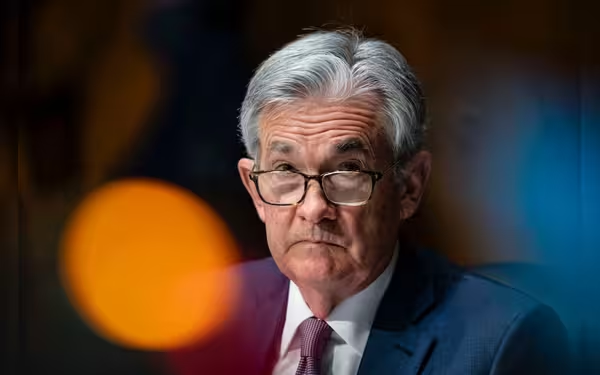Saturday, November 16, 2024 03:16 PM
Federal Reserve's Rate Cut Sparks Global Speculation
- Fed cuts rates by 50 basis points, raising concerns.
- Economists question Fed's focus on employment over inflation.
- Global markets react to Fed's unexpected monetary policy shift.
 Image Credits: asiatimes
Image Credits: asiatimesThe Federal Reserve's recent rate cut raises concerns about the U.S. economy's health and its implications for global markets.
The recent decision by the Federal Reserve to implement its first rate cut in over four years has left many in Asia pondering the implications of this significant move. Jerome Powell, the Fed Chair, announced a larger-than-expected cut of 50 basis points, bringing the interest rate down to a range of 4.75% to 5%. This decision has been met with a mix of relief and skepticism among global investors, as it raises questions about the underlying health of the U.S. economy.
Economists in Asia are particularly curious about what the Federal Reserve knows that the rest of the world does not. Typically, such a substantial cut in interest rates is associated with economic downturns or crises. David Roche, an economist and founder of Global Strategy, remarked, "This ‘jumbo’ cut marks a step towards populist monetary policy by the Fed. It was wanted by the market, where, of course, the pain threshold is zero. It was dictated by the media. But it is not needed by the [US] economy, which is well-balanced." This statement highlights the tension between market expectations and economic realities.
Moreover, Roche raised an important point regarding the Fed's focus on employment over inflation. He questioned whether the decision was wise, suggesting that it places too much emphasis on labor market conditions while potentially neglecting inflationary pressures. This sentiment is echoed by Mark Zandi, chief economist at Moody’s Analytics, who stated that the cut "feels overly aggressive, unless you know the economy is going to start to weaken more significantly." Such comments indicate a growing concern that the Fed may be acting prematurely.
Ryan Sweet, an economist at Oxford Economics, further speculated that the Fed might be acknowledging a delay in its policy response. He noted, "The Fed doesn’t like to admit policy errors, but some of the decision for a larger cut in September is likely to get caught up as the central bank found itself behind the curve by one meeting." This suggests that the Fed's recent actions may be more about catching up than responding to current economic conditions.
As the Fed navigates its inflation strategy, it is essential to consider the broader implications for the global economy. Powell's team has acknowledged that inflation remains "somewhat elevated" above the Fed's target of 2%, with the Consumer Price Index (CPI) rising at a 2.5% annualized rate in July. This acknowledgment raises questions about the Fed's confidence in its ability to balance employment and inflation goals, especially in light of dissent from within its ranks. Fed board member Michelle Bowman expressed her preference for a more modest quarter-point cut, marking the first dissent by a Fed governor since 2005.
As attention shifts to Asia, particularly Tokyo, the Bank of Japan is set to hold a two-day policy meeting. Following a rate hike to 0.25% in late July, the BOJ is expected to maintain its current rates amid signs of sluggish economic growth. This situation underscores the interconnectedness of global economies and the ripple effects of the Fed's decisions.
The Federal Reserve's recent rate cut has sparked a wave of speculation and concern among economists and investors alike. While the move may have been welcomed by markets, it raises critical questions about the underlying health of the U.S. economy and the Fed's future policy direction. As global markets continue to react, it is crucial for stakeholders to remain vigilant and informed about the evolving economic landscape.













